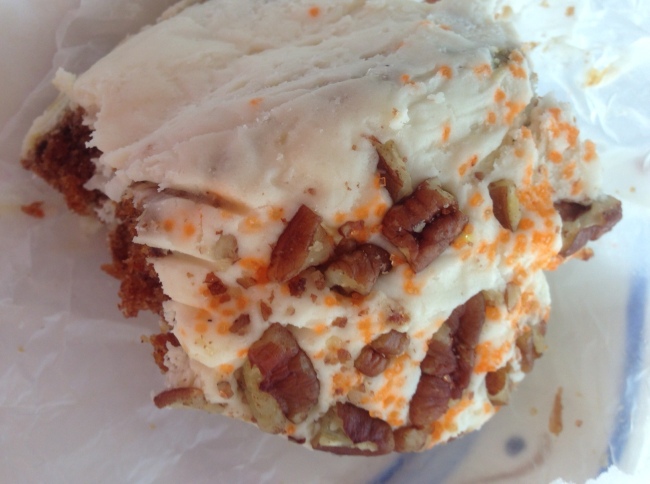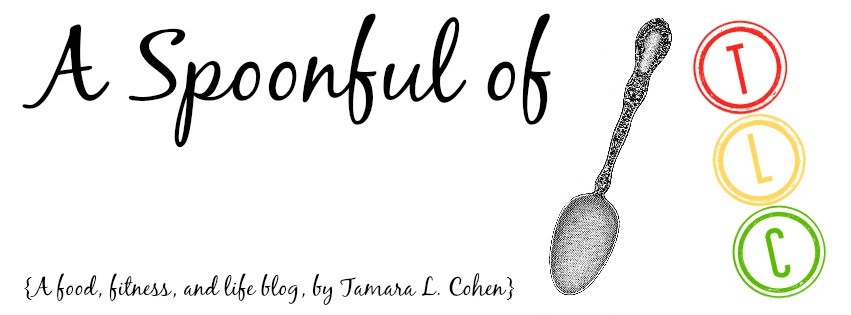Good Evening!
I wanted to do a WIAW post today, but my food has been pretty unappetizing and boring today (cereal, tuna sandwich, cheese stick, salad, etc), so I’m not really going to write about that. Instead, I am going to write about what I will be eating as of next Monday.
I’ve never really talked about it on here, but I have had semi- serious stomach issues for the last few years that leave me in nauseating pain (literally) some days, and mild, uncomfortable pain on others, but nonetheless, my stomach hurts almost every day. I started having stomach pain my freshman year of college and, you know, attributed it to dining hall food. The pain was always mild, but it was there. It went away in the summer and then sophomore year, it came back and instead of being every few days, it would come around almost every day. These days, I feel pretty sick from it just about every day (some days are worse than others- nausea, dizziness, shaking, SO bloated). Last year, I started writing down every single thing that I ate and would record when the pain would begin and how intense it was in an attempt to find a pattern with certain foods. The only pattern that I could discern was that I start to get uncomfortable some time between lunch and dinner, but it was never when I ate any certain type of food. I could eat dairy some days and feel fine, but others would make me feel sick as soon as I swallowed the food. Same with gluten, vegetables, soy and meat. Every day is different. I decided to make an appointment with a gastroenterologist and the only thing that came from that was a huge list of foods that I couldn’t eat and a very short list of foods that I could eat- basically rice and white potatoes. I tried it for a few days and gave up and of course, the pain came back. I was supposed to have a follow-up appointment six weeks later, but I canceled it because oddly enough- my stomach never hurts when I go home, so I kind of forgot about how bad it actually hurts. It never hurts if I am home for the weekend, or home for a break. It hurts at school, it hurts at work, it hurts away from home. It’s so strange. Anyway, fast forward to this year and my stomach is at an all-time unhappy place. Every. single. day. I seems like I can’t avoid it. I start to feel pretty awful after lunch and it lasts usually until I go to bed. The theory that it’s something in the food at school was my best guess for awhile, but eating in my room has the same effect. Stress is another theory, as I don’t usually feel sick when I’m not under any pressure.
I really don’t know what it is and I’ll probably make another appointment with the gastroenterologist for the summer time, but before that, I have something new that I want to try.
I was sitting in my nutrition class last week when I heard a girl talking about how she eats a gluten-free diet because she used to have stomach issues, but since changing her diet, she has felt much better. I jumped into her conversation and told her all of my symptoms and she said that she experienced basically the same thing. She then told me that her pain started freshman year, just like mine, but she started limiting FODMAPS from her diet, and has felt better ever since.
Of course, I had a billion questions and she offered to let me borrow the book that has everything that I would ever need to know.
I started reading as soon as she gave it to me and got half-way through it before the end of class. In short, the book is a guide to eating a low FODMAPS diet- how to do it and how to get the most out of it. FODMAPS stands for Fermentable Oligo-, Di-, and Monosaccharides And Polyols, specifically dealing with lactose, fructose, fructans, polyols and galactans.
FODMAPS carbs are sugars, starches and fibers that some people can’t fully absorb, which is malabsorption. FODMAPS are found in certain grains, fruits, vegetables, beans and milk products. Instead of being absorbed in the small intestine, these carbohydrates pass to the large intestine, which can cause pain and discomfort.
The book goes into the science of what is happening and then goes on into the plan for eliminating FODMAPS. It provides lists of foods that are okay to eat, and foods that shouldn’t be eater or should be eaten in moderation. For the first two weeks of the diet, all FODMAPS should be eliminated completely and then after two weeks, one or two foods at a time can be added back in to see if they are what triggers a bad reaction.
After looking through the lists of “safe” foods, I have compiled of list of things that I usually eat and can still eat:
- oatmeal
- rice
- popcorn
- pumpkin
- most starchy vegetables (potatoes, squash, etc.)
- most vegetables
- nuts and nut butters
- oil of any type
- almond milk
- any type of meat
- cottage cheese
- fish
- tea
- coffee (black)
And foods that I can no longer eat:
- wheatberries
- Anything with High-Fructose Corn Syrup
- I can only eat fruit in moderation
- most dairy products (cheese, cream)
- coconut milk
- tomatoes and tomato-based products
- lentils
- beans
- soy products
- yogurt or yogurt solids
- whey
- desserts with sugar should be eaten in moderation (so basically, all the good ones)
- honey
- jam/ jelly in moderation
There are a lot of other foods that can be eaten, as well as other foods that can’t be eaten, but I tried to include foods that show up on my plate every so often. It’s going to take some getting used to, but I am ready to do whatever I need to do to start feeling better the entire day. I basically eat the same thing every day and old habits die hard, so we shall see how this goes!
I plan to start Monday. I just finished the last big hunk of carrot cake that my parents brought me. My stomach is rumbling! No more of that for a little while.
Here’s to hoping this helps!


No Comments
Have you thought about getting a hydrogen breath test for Fructose Malabsorption? If that’s what you have you still might have problems eating popcorn, oatmeal and vegetables. At least with the test you would know for certain!
I have never heard of that! Where do they do those tests? I have been on this diet for two days now and currently in a lot of pain, but it’s only been two days!
You should be able to get one at a gastroenterologist. Since Fructose Malabsorption isn’t widely known, maybe the doctor you’ve been seeing hasn’t heard of it? You might want to call around…
Wow, thank you! I will definitely look into that! Ill do anything